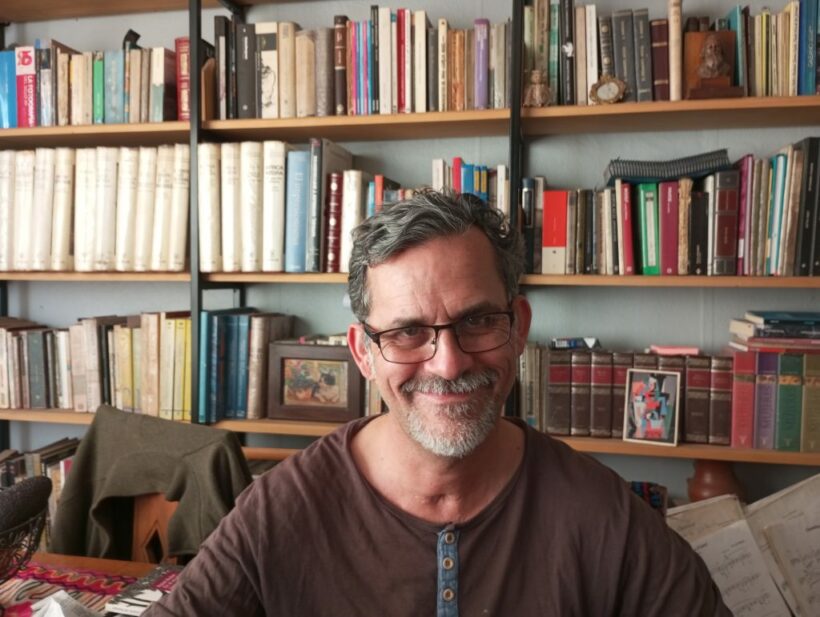The debate on security confronts conflicting visions of society and the state, which should be expressed in proposals that address them and, above all, take into account the principles that inspire them; the needs of the workers, but also solutions in which they participate and have the possibility of evaluating and controlling.
Hernán González. Professor. Valparaíso. 29/4/2024. The murder of three carabineros in Cañete, instead of generating a political debate on the fight against crime and security policies, has become a pretext for the use of sentimentality, demagogy, and the legitimization of the anger and repressed aggression of society. One of the conditions that historically facilitated the rise of fascism is precisely the liberation of subjectivism and the most basic irrationality, which legitimizes the inherent violence of capitalist societies.
Today, unlike the fascist phenomenon of the mid-twentieth century, it is a product of the destruction of the state and its reduction to the tasks of internal security, border protection, and the administration of justice, which it serves only by the principle of subsidiarity. In this way, neo-liberalism abandons our society to the unleashed force of individual desires and preferences, which, not always satisfied by the state, seek a way to be satisfied not through forms of rational deliberation, but through the pure imposition of force.
The state is reduced to precisely this irrational form of resolving social conflicts and, consequently, to adopting the least rational and democratic ways of dealing with them. We are already hearing proposals to reintroduce the death penalty, even limiting its application to the murder of police officers; and, in more sophisticated versions, to convene COSENA and declare states of emergency, that is, to limit the exercise of constitutional rights and guarantees, as a way of dealing with a problem of public order, without even having debated its meaning and scope.
In this way, it not only legitimizes the use of repression against society, but also prepares it for the assimilation of subjective violence, which is expressed in the rejection of immigrants first, indigenous peoples, and then the LGBTQ population, trade unionists, environmental defenders and all those who are identified as not conforming to common sense. That which does not conform to the norms of social coexistence that are taken for granted and by which communities relate to each other, or should relate to each other, until such norms fail to provide adequate responses to individual desires and aspirations, which then manifest themselves violently.
Such violence then ultimately turns against the very communities that suffer from it in the form of drug trafficking, common crime, gender, and sexual orientation violence, poverty, and mistreatment in health services, education, and public transport, in the form of oppression. It is the spiral of violence in which neoliberalism takes root and which Trump, Bolsonaro, and Kast prefer as the ideal scenario to spread the values of intolerance, racism, and classism and to stop the advance of left and progressive ideas.
The demobilization of the trade unions, the student movement, and the users’ and consumers’ associations have opened the way for the ultra-right, and not, as the ideologues of the system like Tironi and Brunner suggest, because they are satisfied with the model. Even their polls show this. Reducing its politics and historical meaning to the economic struggle and removing it from the spaces of political debate reinforces the inherent tendency of the system to naturalize the conditions of exclusion and marginalization of broad sectors integrated through credit, a promise that later becomes a new form of exclusion, namely indebtedness.
However, in addition to grassroots work in trade unions, debtors’ associations, users’ organizations, and youth organizations, to take part in the political debate in society, it is necessary to engage in an ideological struggle with the right-wing and its caricature, a debate about the ideas and principles expressed in the documents of Democratic Socialism, the Frente Amplio and the Communist Party. These ideas are not just abstract declarations of principle, but political orientations for their actions and what distinguishes them, not at the doctrinal level, but in political practice, from the right-wing positions and the reactionary drift to which they have given rise in recent times.
Certainly, insecurity and criminal violence in the neighborhoods and cities inhabited by workers is another way of experiencing the vulnerability and precariousness of life under the neoliberal system, which first creates the conditions for its proliferation and then confronts it with repression, confinement, control and restriction of the civil and political rights of those who suffer from it. Behind the debate on security there are opposing visions of society and the state, which should be expressed in proposals that address them and, above all, take into account the principles that inspire them, the needs of the workers, but also solutions in which they participate and have the possibility of evaluating and controlling.










